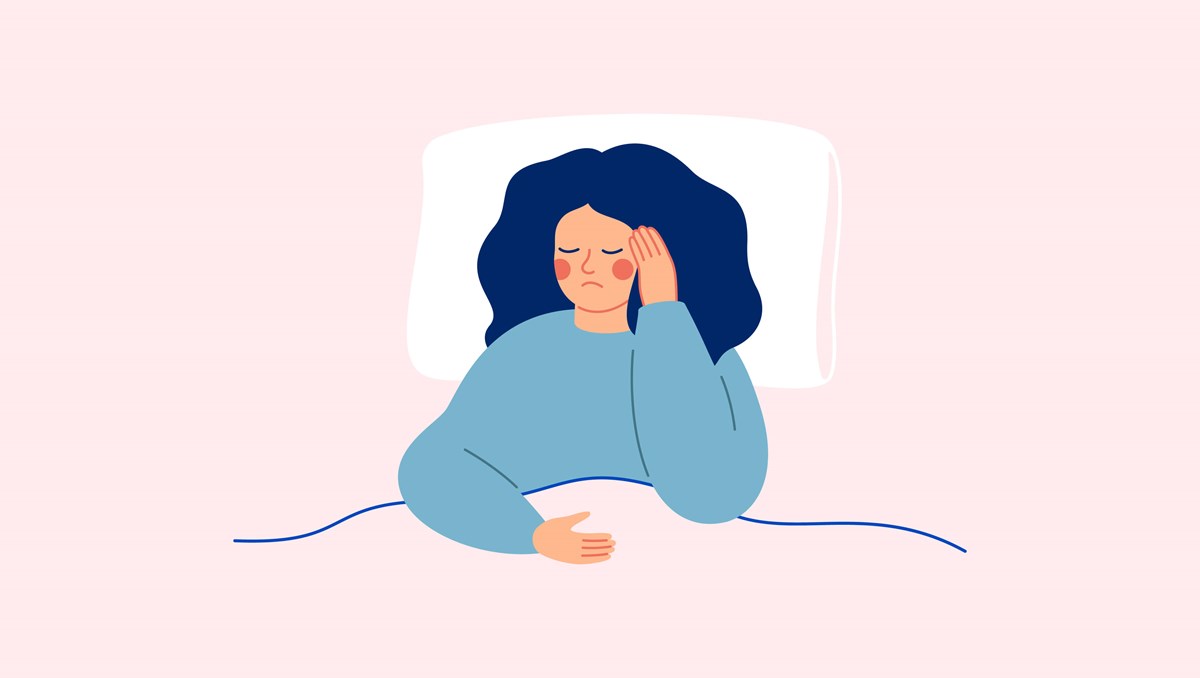Dealing with illness: a guide for teachers and education staff
If you find yourself unwell, you may face new stressors and anxieties on top of your physical symptoms. Some of these will be personal, while others may relate to your professional life, including stress or anxiety about how your absence may be perceived by colleagues or the amount of work you might have to return to. This guide discusses some of the main things to consider if you are unwell.
Guides

What's in this guide:
Taking time away from school can be difficult due to the guilt you may feel towards your students and colleagues and the amount of work required to organise cover.
Nonetheless, when ill, it is vital to look after yourself first and foremost. This article discusses some of the main things that you should consider if you are unwell.
Understanding your illness
This is the pivotal first step. It’s important to understand if you are a bit under the weather or if you’re suffering from a chronic illness. You can likely be a good judge of that yourself – based on how long you’ve been unwell for and how severe your symptoms are – but if you’re in any doubt at all, make sure you see your doctor.
It is also important to ascertain whether you are suffering from physical or mental ill health, or a combination of the two. Both are equally as important and can cause a broad range of symptoms.
Different people respond in different ways to becoming ill; you may experience upset, anger, anxiety or even apathy. It's important to remember that any feelings you have are valid.

Communication with colleagues
Your line manager
Talking to your line manager and making them aware of what’s going on is a vital first step. Ideally, you will work together on a plan or approach to dealing with your illness and any potential long-term impact this may have on colleagues, pupils or students. Make sure you follow any protocols regarding staff illness to help reduce any anxiety about how colleagues might perceive you, and liaise regularly with your line manager, especially if any of your symptoms change or worsen.
Tips for communicating with your line manager if you have a short-term illness:
- Try to explain to them what is wrong (though don’t worry if you don’t feel comfortable giving full details)
- Let them know when you expect to be back at work, if possible
- Remember that you can self-certify for up to seven days, so you may not need medical evidence of your illness
Tips for communicating with your line manager if you have a chronic illness:
- There should ideally be one person who contacts you from the organisation; this will probably be your line manager, but may be an HR representative
- Don’t panic about trying to give any return dates, as you are unlikely to know these and your employer doesn’t need to know at this stage
- Try to keep them updated about your illness – whether it is getting better, worse or staying the same – so that they can plan accordingly
Your team
You may work in a team, such as a department or year group, or you may co-plan with members of your team. Being stressed about letting teammates down can be one of the most stressful aspects of being ill. It may help to talk to them directly and ensure that they understand what’s going on for you and how to support you as far as you are comfortable. Resentments are most likely to build between colleagues if they don’t understand why they have to fill in or are unaware of reasonable reasons for someone’s absence.
Tips for communicating with your team if you have a short-term illness:
- Keep it brief – they don’t need to know the details, just that you are unwell
- If it’s feasible to do so, it’s a good idea to pass on as much of the planning, etc. that you have already prepared
- Again, if possible, let your team know where your classes are up to in their curricula, to take the pressure off you providing daily cover work
Tips for communicating with your team if you have a chronic illness:
- Ask yourself how you would support a colleague if they were chronically unwell; you would likely be kind and understanding – it’s not unreasonable to hope for the same from others
- Try not to worry about constantly providing cover work; once your team have got organised with setting this, they will be able to get on with it themselves
- Unless you want to for personal reasons – i.e. because you are friends with team members, – there is no need to keep updating them about your illness
Those you line manage
On the other hand, if you have a TLR or are a member of the Senior Leadership Team, you may also have people you line manager to consider. Again, it may support your wellbeing to know that you have left things in good order while you are absent from focusing on getting better.
Tips for communicating with those you line manage if you have a short-term illness:
- If you are able to, give the people you line manage a list of tasks that have to be done and one of the jobs that can wait for your return
- Also, give these lists to your line manager, if possible, so that they can oversee your colleagues and help out where necessary
- Remember that there is no need to give any details about your illness to those you line manage
Tips for communicating with those you line manage if you have a chronic illness:
- If you can, tell them that you will be away for a while and thank them for deputising for you in your absence
- If possible, provide your second in faculty or deputy head of year with your strategic overview, enabling them to continue with this
- Again, there’s no need to divulge details about your illness; however, it may be beneficial to offer some reassurance as they’re likely to be worried about you

Self-care
As a teacher or educator, it’s possible that you may feel frustrated at having to take time away from the classroom. That’s understandable! This is why we advocate prioritising your own self-care and recovery time, whether your illness is physical or mental.
Self-care isn’t selfish. It can support your recovery and ultimately help you to return to the classroom sooner rather than later. It’s also important to remember that self-care doesn’t have to stop once you recover from an illness. Ask yourself what habits you can carry forward to help you stay feeling your best.
It is important to be kind to yourself. Don’t beat yourself up for missing work or letting anyone down. You’re a human being, not a machine. We all get ill at some point during our lives. The most important thing is that you give yourself the time and space to recover, so you can continue to be the best teacher possible. Studies1 have shown that as well as improving mental wellbeing, self-kindness has positive benefits on the immune and cardiovascular systems. It’s not your fault if you’re ill – remember what you would say to a good friend if they were in the same situation.
Diet and nutrition
With any illness, maintaining a healthy, balanced diet is important. Ensuring you have enough vitamins and minerals – mostly gained from fruit and vegetables – will help your body fight off infections and improve your mental state. Try to reduce your salt and sugar intake when you are ill, as these may slow your recovery. Take on enough fluid – preferably water – to remain hydrated, especially if you are sick or expelling any fluids as part of your illness. The NHS provides2 full guidance about what they consider to be a good diet for keeping healthy, as well as some recipe ideas.
Getting enough sleep
Having sufficient rest and sleep is also significant, whether you are suffering from a physical or a mental illness. Research3 shows how sleeping well can reduce the likelihood of ill health and help you recover if you are already unwell. As well as that, it may help to exercise regularly, depending on the type of illness you have. This can range from physical exercise – such as jogging or stretching – or activities that can support your wellbeing like meditation or gentle yoga.
If you’re interested in knowing more, you can read our guide to the Building Blocks of Good Mental Wellbeing. We also have a Guide to Meditation for Teachers and Education Staff.
Employers’ responsibilities
To have the best possible conversations with colleagues and reduce any anxiety that arises from uncertainty, it can help to understand the practical responsibilities of your employer.
The Government provides generic advice4 regarding sick leave, though specific information will be found within your school’s policies and your contract. Ordinarily, you can self-certify for being off work for illness for up to seven days. If you need to be away from school for longer than that, you will need to obtain a fit note from your doctor stating that you cannot work. In that case, a Statement of Fitness for Work certificate will be required when you can return. The National Education Union5 (NEU) also explains the requirements for both the unwell employee and their employer in relation to education professionals being ill.
When returning to work, reasonable adjustments to your working practice should be considered by your school. You may wish to suggest some of these during your return-to-work interview. The Government suggests6 the following adjustments to work following illness:
- Offering a phased return to work, which may mean you are coming in only for the mornings for your first two weeks back, or something similar. .
- Flexible or part-time working; though a reduction in hours would affect your salary, you may find it beneficial in the short-term to ensure that you are fully over your illness.
- Changing equipment, such as having a tinted screen cover for your computer if you have been suffering from headaches.
- Enhancement of the physical environment, for example, by installing a ramp for a wheelchair user.
- Altering how you work, such as giving you your own workspace rather than having to use a hot-desk if you have social anxiety.
- Moving where you work to be in a ground floor classroom if walking or using stairs has become difficult.
Regarding your pay, there are rules in place about this for teachers. This operates on a sliding scale depending on how long you have been continuously working as a teacher. The maximum entitlement comes when you have been working for four years or longer and entitles you to 100 days of full pay during a financial year and half pay for a further 100 days. For entitlements, if you have been a teacher for less than four years, see the NEU website7. This is referred to as ‘occupational sick pay,’ which is likely to be more money than ‘statutory sick pay.’ Statutory sick pay8 is money that an employer is legally obliged to pay for a period of up to 28 weeks (196 days) if somebody is off work due to ill health. You can check the current limit; then if this amount is more than your occupational sick pay, you should be paid this instead.
Summary
Illness affects us all in different ways. When faced with a new illness, the most important thing to do first is understanding what it is and how it may affect you. Once you’ve sought medical advice, we recommend that you take the following steps:
- Inform the person or people at work who need to know
- Make sure that you eat as healthily you can and drink lots of water
- Take all the opportunities you can for rest
- On your return to school, discuss what adjustments may be beneficial to you and take it slowly when you first start back
Sign up to our newsletter for more mental heath and wellbeing resources, news and events straight to your inbox.
Don’t wait for a crisis to call.
We’ll offer you immediate, emotional support.
08000 562 561

Sign up to our newsletter for the latest mental heath and wellbeing resources, news and events straight to your inbox.





















